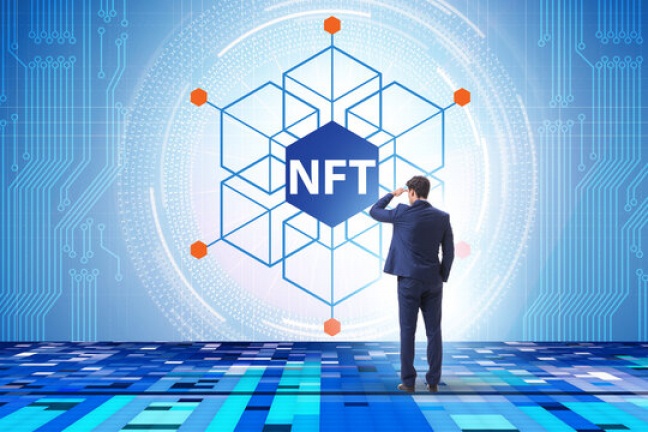As Non-Fungible Tokens continue to capture mainstream attention, their integration into various industries has surged, prompting both excitement and regulatory scrutiny. NFT marketplaces, serving as the primary platforms for trading these digital assets, are at the forefront of this evolution. However, the regulatory landscape surrounding NFT marketplaces is dynamic and evolving, presenting challenges and opportunities for businesses operating in this space. In this blog, we will explore the evolving regulatory landscape in NFT marketplace development for 2024 and discuss strategies for businesses to navigate this complex terrain.
Understanding NFTs and NFT Marketplaces:
Before delving into regulatory considerations, it's crucial to grasp the basics of NFTs and NFT marketplaces. NFTs are unique digital assets stored on a blockchain, representing ownership of a specific item or piece of content, such as digital art, collectibles, or virtual real estate. NFT marketplaces are online platforms where users can buy, sell, and trade these digital assets, often utilizing cryptocurrencies for transactions.
Evolving Regulatory Landscape:
The regulatory environment surrounding NFTs and NFT marketplaces is still in its nascent stages, with regulators worldwide grappling to establish frameworks that address the unique characteristics and potential risks associated with these digital assets. As we move into 2024, several key regulatory trends are shaping the landscape:
-
Increased Scrutiny: Regulators are increasingly scrutinizing NFTs and NFT marketplaces due to concerns related to investor protection, anti-money laundering (AML), and counter-terrorism financing (CTF). Authorities are closely monitoring these platforms to ensure compliance with existing financial regulations and to prevent illicit activities, such as money laundering and fraud.
-
Emerging Frameworks: In response to the rapid growth of NFTs, some jurisdictions are beginning to develop specific regulatory frameworks tailored to these digital assets. These frameworks aim to provide clarity and establish guidelines for market participants, including NFT marketplaces, creators, and investors. However, regulatory approaches vary significantly across different regions, leading to regulatory fragmentation and uncertainty for businesses operating globally.
-
Consumer Protection: With the increasing popularity of NFTs, regulators are also focusing on consumer protection measures to safeguard investors from potential risks and scams associated with these digital assets. This includes measures to enhance transparency, disclosure requirements, and investor education initiatives to ensure users are adequately informed before participating in NFT transactions.
Navigating the Regulatory Landscape:
For businesses operating in the NFT marketplace development space, navigating the evolving regulatory landscape requires a proactive approach and a comprehensive understanding of regulatory requirements and best practices. Here are some strategies to consider:
-
Regulatory Compliance: Ensure compliance with relevant regulations governing financial transactions, securities, and consumer protection. This may include AML/KYC (Know Your Customer) procedures, compliance with securities laws, and adherence to consumer protection regulations. Collaborate with legal experts with expertise in blockchain and digital assets to navigate the regulatory requirements effectively.
-
Due Diligence: Conduct thorough due diligence on NFT assets listed on your platform to mitigate risks associated with fraudulent or infringing content. Implement robust vetting processes to verify the authenticity and ownership of NFTs, as well as to identify any potential legal or copyright issues. Additionally, establish mechanisms for dispute resolution and content takedown procedures to address legal concerns promptly.
-
Transparency and Disclosure: Promote transparency and disclosure practices to foster trust and confidence among users. Provide clear and comprehensive information about NFTs listed on your platform, including details about the creator, provenance, and any associated rights or licenses. Implement transparent pricing mechanisms and disclose any fees or commissions charged by the platform to users.
-
Technology and Security: Invest in robust technology infrastructure and security measures to protect against cyber threats and ensure the integrity of NFT transactions. Implement encryption protocols, multi-factor authentication, and secure storage solutions to safeguard users' digital assets and personal information. Stay abreast of emerging technologies and best practices in cybersecurity to adapt to evolving threats effectively.
-
Engagement with Regulators: Engage proactively with regulators and industry stakeholders to contribute to the development of regulatory frameworks that balance innovation with investor protection. Participate in industry forums, working groups, and consultations to share insights, address concerns, and advocate for sensible regulations that support the growth of the NFT ecosystem.
-
Education and Awareness: Educate users about the risks and benefits of participating in NFT transactions and promote responsible investing practices. Provide resources, tutorials, and educational materials to help users navigate the complexities of NFTs, blockchain technology, and regulatory compliance. Empower users to make informed decisions and protect themselves from potential scams or fraudulent activities.
Conclusion:
As NFTs continue to reshape the digital economy, the regulatory landscape surrounding NFT marketplace development is evolving rapidly. Businesses operating in this space must navigate a complex web of regulations, compliance requirements, and consumer protection measures to succeed in the long term. By adopting a proactive approach, implementing robust compliance measures, and engaging with regulators and stakeholders, businesses can position themselves as trusted leaders in the burgeoning NFT marketplace ecosystem. Despite the challenges posed by regulatory uncertainty, the potential rewards of participating in this dynamic market make it an exciting and rewarding opportunity for innovative businesses willing to embrace change.


No comments yet